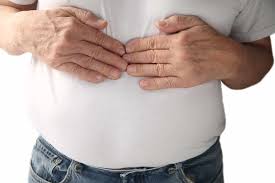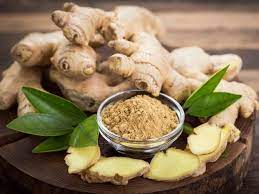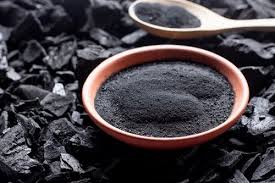Quick Tips for Immediate Gas Pain Relief
Gas pain is a common condition that occurs when gas builds up in the digestive system and causes discomfort or pain. The pathophysiology involves the normal functioning of the digestive system. When food is consumed, it is broken down into smaller molecules by enzymes in the mouth, stomach, and small intestine. These molecules are absorbed into the bloodstream and transported to the cells of the body for energy. However, some undigested food molecules may pass into the large intestine where they are fermented by bacteria. This fermentation process produces gas as a byproduct, including methane, hydrogen, and carbon dioxide. This gas is normally expelled from the body through belching or flatulence. If the gas cannot be expelled from the body, it accumulates in the gastrointestinal tract (GI), causing pressure and distension. The distension activates pain receptors in the intestinal wall, leading to the sensation of pain. We will discuss the following topics:
Causes of gas pain
Common foods that cause gas
Medical conditions that can cause excess gas
Symptoms of gas pain
Complications of gas pain
Gas in babies
Gas in pregnancy
Holding in a fart
Diagnosis of gas pain
How to prevent gas pain
Treatment for gas pain
Natural remedies contra gas pain
When to seek urgent medical care

Causes of gas pain
It is caused by the accumulation of gas in the gastrointestinal (GI) tract. This gas can be swallowed air or the result of the fermentation of undigested food by bacteria in the large intestine. The gas builds up and causes pressure and distension in the GI tract, which can lead to pain and discomfort. It can be caused by a variety of factors, including:
- Swallowing air while eating or drinking
- Consuming foods that are difficult to digest, such as beans, broccoli, and cabbage
- Eating too quickly or not chewing food properly
- Constipation
- Irritable bowel syndrome (IBS)
- Lactose intolerance
- Acid reflux or gastroesophageal reflux disease (GERD)
Common foods that cause gas and bloating

- Beans and legumes
- Cruciferous vegetables, such as broccoli, cauliflower, and cabbage
- Onions and garlic
- Dairy products, particularly if you’re lactose intolerant
- Fruits such as apples, peaches, and pears
- Whole grains, particularly if you’re not used to consuming a lot of fiber
- Carbonated beverages and drinks with added sugar or artificial sweeteners
- Fatty and fried foods
- Chewing gum and hard candies
It’s important to note that not everyone reacts the same way to these foods, and some people may not experience gas and bloating at all after consuming them. However, if you’re experiencing gas pain or bloating, it may be helpful to identify which foods are triggering your symptoms and adjust your diet accordingly.
Medical conditions that can cause excess gas
- Irritable bowel syndrome (IBS): IBS is a chronic condition that affects the large intestine and can cause bloating, gas, and abdominal pain.
- Inflammatory bowel disease (IBD): IBD is a group of chronic conditions that cause inflammation in the digestive tract, including Crohn’s disease and ulcerative colitis. These conditions can cause excessive gas, diarrhea, and abdominal pain.
- Celiac disease: Celiac disease is an autoimmune disorder that causes damage to the small intestine when gluten is consumed. Symptoms may include bloating, gas, diarrhea, and abdominal pain.
- Small intestinal bacterial overgrowth (SIBO): SIBO occurs when there is an overgrowth of bacteria in the small intestine, which can lead to bloating, gas, and diarrhea.
- Gastroparesis: Gastroparesis is a condition in which the stomach takes longer than normal to empty its contents, leading to bloating, gas, and abdominal pain.
- Pancreatic insufficiency: Pancreatic insufficiency occurs when the pancreas does not produce enough digestive enzymes to properly break down food, which can lead to bloating, gas, and diarrhea.
Symptoms of gas pain can include:

Symptoms can range from mild discomfort to severe pain that affects the ability to perform daily activities and can vary depending on the severity of the condition. If you experience severe pain, vomiting, or signs of dehydration, it is important to seek medical attention immediately. Here are some common symptoms:
- Sharp or crampy pain in the abdomen, which can be located anywhere from the upper to lower abdomen.
- Bloating and distension of the abdomen, which may make the belly feel full and tight.
- Passing excessive gas or belching, which may bring temporary relief of symptoms.
- Nausea and vomiting may occur in severe cases.
- Loss of appetite or feeling of early satiety.
- Feeling of pressure or discomfort in the rectum or anus, which may be relieved by passing gas or bowel movement.
- Mild to moderate headache may also occur in some individuals.
- Belching or flatulence
- Difficulty passing gas or having a bowel movement.
Complications of gas pain
- Anxiety and stress: Chronic or severe gas pain can cause anxiety and stress, which can in turn exacerbate digestive symptoms.
- Disturbed sleep: Gas pain can make it difficult to get a good night’s sleep, which can have negative effects on overall health and wellbeing.
- Decreased appetite: Severe gas pain can sometimes cause loss of appetite, which can lead to malnutrition and weight loss.
- Bowel obstruction: In rare cases, gas pain can be a symptom of a more serious condition, such as a bowel obstruction, which requires medical attention.
- Acid reflux and heartburn: Excessive gas in the stomach can cause pressure that pushes stomach acid up into the esophagus, leading to acid reflux and heartburn.

Gas is a common problem in babies, especially during the first few months of life. Some common causes in babies include:
- Swallowing air: Babies often swallow air while feeding, especially if they are using a bottle, which can lead to gas and discomfort.
- Immature digestive system: A baby’s digestive system is still developing, which can make it harder to process certain types of food and lead to gas and bloating.
- Food sensitivities: Some babies may have food sensitivities or allergies that can cause gas and other digestive symptoms.
- Overfeeding: Overfeeding can lead to gas and discomfort, as the baby’s digestive system may not be able to process too much food at once.
- Teething: Teething can sometimes cause a baby to swallow more air while chewing on objects, which can lead to gas and discomfort.
While gas is usually not a serious problem in babies, it can cause discomfort and fussiness. Some strategies to help reduce gas in babies include:
- Burping: Burping your baby after each feeding can help to release any trapped air in the stomach.
- Feeding position: Holding your baby upright while feeding can help to reduce the amount of air they swallow.
- Slow feeding: Feeding your baby slowly and allowing them to take breaks can help to reduce the amount of air they swallow.
- Gas drops: Over-the-counter gas drops may help to relieve gas and discomfort in some babies.

Gas is a common problem during pregnancy, and it can be caused by a number of factors. Some of the most common causes include:
- Hormonal changes: Hormonal changes during pregnancy can affect digestion and lead to increased gas and bloating.
- Slowed digestion: As the uterus expands and puts pressure on the digestive system, digestion can slow down, leading to increased gas.
- Diet: Eating certain foods, such as those high in fiber or those that are difficult to digest, can lead to increased gas during pregnancy.
- Prenatal vitamins: Some prenatal vitamins can cause increased gas and bloating in pregnant women.
While gas is usually not a serious problem during pregnancy, it can cause discomfort and embarrassment. Some strategies to help reduce gas during pregnancy include:
- Eating smaller, more frequent meals throughout the day instead of large meals.
- Avoiding foods that are known to cause gas, such as beans, broccoli, cabbage, and onions.
- Drinking plenty of fluids, such as water and herbal tea.
- Staying active and getting regular exercise, which can help to improve digestion.
- Practicing relaxation techniques, such as deep breathing and meditation, which can help to reduce stress and improve digestion.
Holding in a fart, or flatulence, can cause discomfort and bloating. While it is generally safe to hold in a fart for short periods of time, doing so for an extended period can lead to a buildup of gas and increased discomfort. This is because holding in a fart can cause the gas to be reabsorbed into the bloodstream and then released through the breath or sweat. In rare cases, holding in a fart for an extended period of time can lead to a condition called megacolon, which is a serious medical condition that requires treatment.
If you are concerned about passing gas in social situations, it’s important to remember that passing gas is a normal bodily function and is nothing to be embarrassed about. In fact, most people pass gas between 14 and 23 times per day. If you are in a social situation where passing gas may be inappropriate, you can try to move to a private area or excuse yourself to go to the restroom to release the gas. Overall, it is generally better to let a fart out rather than hold it in for an extended period of time to avoid discomfort and potential health complications.
Diagnosis of gas pain
A healthcare provider will typically perform a physical exam and review your medical history and symptoms. They may also order tests to help rule out other conditions. Some of the tests:
- X-rays: An abdominal X-ray can help to identify any gas pockets in the digestive tract.
- CT scan: A CT scan can provide more detailed images of the digestive tract and help to identify any abnormalities.
- Endoscopy: During an endoscopy, a thin, flexible tube with a camera on the end is inserted through the mouth or rectum to examine the digestive tract.
- Breath tests: Certain breath tests can help to identify the presence of bacteria in the digestive tract that may be causing excess gas.
Preventing gas pain can involve making some lifestyle changes to reduce the amount of gas in the digestive system. Here are some tips to help prevent gas pain:
- Avoid swallowing air: Eating slowly, not talking with food in your mouth, avoiding chewing gum, and drinking from a glass instead of a straw can help prevent swallowing air.
- Identify and avoid gas-producing foods: Foods that are known to cause gas such as beans, broccoli, cabbage, onions, carbonated drinks, and dairy products should be avoided or reduced in your diet.
- Eat smaller meals: Eating smaller, more frequent meals can help the digestive system process food more efficiently and reduce the amount of gas produced.
- Chew food thoroughly: Chewing food thoroughly helps to break down food into smaller particles, making it easier for the digestive system to process.
- Stay hydrated: Drinking enough water helps to keep the digestive system moving, preventing constipation and reducing the likelihood of gas build-up.
- Exercise regularly: Regular exercise helps to stimulate the digestive system, promoting regular bowel movements and reducing the risk of gas pain.
- Probiotics: Probiotic supplements or foods that contain live cultures such as yogurt can help to promote a healthy balance of gut bacteria, reducing gas and bloating.

- Over-the-counter medications: Simethicone is a medication that can help break up gas bubbles in the digestive tract, reducing bloating and discomfort.
- Change in diet: Eating slowly, avoiding foods that are known to cause gas such as beans, cabbage, broccoli, carbonated drinks, and dairy products can help to reduce gas pain. Moreover, eating smaller meals, and chewing food slowly and thoroughly helps ease gas pain.
- Exercise: Regular exercise can help stimulate the digestive system, which can help to alleviate gas pain.
- Probiotics: Probiotics can help to restore the balance of bacteria in the gut, which can reduce gas and bloating.
- Peppermint oil: Peppermint oil has been shown to have a calming effect on the muscles in the digestive tract, reducing gas pain and bloating.
- Warm compress: Applying a warm compress to the abdomen can help to relax the muscles and reduce gas pain.
If the gas pain is severe or persistent, it’s important to consult a healthcare provider to rule out any underlying medical conditions.
Natural remedies contra gas pain
It’s important to note that while natural remedies may be helpful for some individuals, they may not be effective for everyone. Additionally, it’s important to consult with a healthcare provider before trying any new natural remedies, especially if you have any underlying medical conditions or are taking medications. Here are some examples:
Ginger

Ginger has anti-inflammatory properties that may help reduce inflammation in the digestive tract and alleviate gas pain. It can be consumed as a tea or added to food as a spice. Ginger may be helpful in reducing gas pain due to its anti-inflammatory properties. Gas pain is often caused by inflammation in the digestive tract, and ginger has been shown to have anti-inflammatory effects, which can help to reduce inflammation and relieve pain.
In addition, ginger may also help to speed up digestion and reduce the amount of time food remains in the stomach, which can reduce the likelihood of gas production. This can be especially helpful in cases where gas pain is caused by slow digestion or food remaining in the stomach for too long.
Ginger can be consumed in various forms such as fresh, dried, powdered, or in supplement form. It can be added to food or drinks or consumed as a tea. However, it’s important to note that while ginger is generally safe for most people, it may interact with certain medications and may not be suitable for everyone. It’s always best to consult with a healthcare provider before using ginger or any other natural remedies to treat gas pain.
Fennel

Fennel seeds contain anethole, which has been shown to have anti-spasmodic effects that may help relax the muscles in the digestive tract and reduce gas pain. Fennel seeds can be chewed after a meal or added to tea. Fennel is a natural remedy that has been used for centuries to treat digestive problems, including gas pain. Fennel contains anethole, which is a compound that has anti-spasmodic effects on the muscles of the digestive tract. This can help to relax the muscles in the intestines, reducing cramping and bloating, and ultimately alleviating gas pain.
Fennel seeds can be consumed in various forms such as chewing them after a meal, brewing them in tea, or adding them to dishes as a spice. Fennel is also available in supplement form. Some studies have suggested that fennel may be effective in reducing symptoms of digestive disorders, including gas pain. While fennel is generally safe for most people, it may interact with certain medications and may not be suitable for everyone. It’s always best to consult with a healthcare provider before using fennel or any other natural remedies to treat gas pain or any other medical condition.
Chamomile

Chamomile is a natural remedy that has been used for centuries to treat digestive problems, including gas pain. Chamomile has anti-inflammatory and anti-spasmodic properties that may help to reduce inflammation and relax the muscles in the digestive tract, ultimately alleviating gas pain. Chamomile tea is a popular way to consume chamomile, and it can be especially helpful in reducing gas pain when consumed after a meal. Chamomile tea can also help to reduce stress and anxiety, which are common triggers of digestive problems.
While chamomile is generally safe for most people, it may interact with certain medications and may not be suitable for everyone. It’s always best to consult with a healthcare provider before using chamomile or any other natural remedies to treat gas pain or any other medical condition.
Activated charcoal

Activated charcoal can help absorb excess gas in the digestive system, reducing bloating and discomfort. It is available in supplement form. It is a natural remedy that has been used to alleviate gas pain and bloating. Activated charcoal is a form of carbon that has been treated with oxygen to make it highly porous, which enables it to trap gases and toxins. When consumed, activated charcoal binds to gas in the digestive tract and absorbs it, reducing bloating and discomfort associated with gas pain. It can be taken as a supplement in pill or capsule form, or mixed with water and consumed as a drink.
It’s important to note that activated charcoal should not be taken with other medications or supplements, as it can interfere with their absorption. In addition, activated charcoal may cause constipation or black stools in some individuals. While activated charcoal is generally safe for most people, it may not be suitable for everyone. It’s always best to consult with a healthcare provider before using activated charcoal or any other natural remedies to treat gas pain or any other medical condition.
Peppermint

Peppermint is a natural remedy that has been shown to be effective in reducing symptoms of gas pain and bloating. Peppermint contains menthol, which has antispasmodic effects that can help to relax the muscles in the digestive tract, reducing cramping and bloating. Peppermint can be consumed in various forms such as chewing on fresh peppermint leaves, brewing peppermint tea, or consuming peppermint oil capsules. Peppermint oil capsules are a popular way to consume peppermint, as they contain a concentrated form of peppermint oil that is released in the intestines, where it can provide the most benefit.
While peppermint is generally safe for most people, it may interact with certain medications and may not be suitable for everyone. It’s always best to consult with a healthcare provider before using peppermint or any other natural remedies to treat gas pain or any other medical condition.
Cloves

Cloves have been used for centuries in traditional medicine to treat digestive issues, including gas pain. The active compounds in cloves, including eugenol and carvacrol, have been shown to have anti-inflammatory, antimicrobial, and analgesic properties.
When it comes to gas pain, cloves are believed to work by relaxing the smooth muscles of the digestive tract, which can help to relieve bloating, gas, and abdominal pain. Cloves can be consumed in several forms, including as a spice in cooking, as a tea, or in supplement form.
To make a clove tea, simply steep 1-2 teaspoons of whole or ground cloves in hot water for 5-10 minutes. This can be consumed up to three times per day.
While cloves are generally considered safe, consuming too much can lead to side effects, including nausea, vomiting, and diarrhea. It’s also important to note that clove supplements may interact with certain medications, including blood thinners and diabetes medications, so it’s important to speak with a healthcare provider before taking them.
Overall, while more research is needed to fully understand the effectiveness of cloves for treating gas pain, they may be a safe and natural option to help relieve digestive discomfort.
Apple cider vinegar

Apple cider vinegar may help to balance the pH of the stomach, reducing the likelihood of gas pain. It can be consumed diluted in water or added to food as a condiment. Apple cider vinegar (ACV) is a natural remedy that has been suggested to help with gas pain, but the evidence is limited and mixed. ACV contains acetic acid, which has been shown to improve digestion and help with the absorption of nutrients. However, more research is needed to determine whether ACV is effective for reducing gas pain.
Some people claim that drinking a mixture of ACV and water before or after a meal can help to reduce gas and bloating, but there is no scientific evidence to support this claim. In fact, drinking ACV in excess can irritate the stomach lining and worsen digestive problems. While ACV is generally safe for most people in small amounts, it may interact with certain medications and may not be suitable for everyone. It’s always best to consult with a healthcare provider before using ACV or any other natural remedies to treat gas pain or any other medical condition.
Physical activity

Physical activity can have both positive and negative effects on gas pain. On the one hand, regular exercise can help to improve digestive function and reduce bloating and gas by promoting the movement of gas through the digestive tract.
On the other hand, some types of physical activity, particularly high-impact exercises, can cause gas pain by jostling the contents of the digestive tract and increasing the production of gas. Additionally, if you are not properly hydrated before and during exercise, this can lead to dehydration, which can contribute to constipation and gas pain.
To minimize gas pain during physical activity, it’s important to stay hydrated and to avoid eating large meals or foods that are known to cause gas before exercising. You may also want to consider incorporating low-impact exercises, such as walking or yoga, which can help to promote digestion and reduce gas pain.
If you experience persistent or severe gas pain during or after physical activity, it’s important to speak with a healthcare provider to rule out any underlying medical conditions.
When to seek urgent medical care
While gas pain is typically not a medical emergency, there are certain circumstances in which you should seek urgent medical care:
- Severe or sudden onset of gas pain: If you experience sudden and severe gas pain, particularly if it is accompanied by other symptoms such as fever, vomiting, or diarrhea, you should seek urgent medical care. These symptoms may indicate a more serious underlying condition, such as a bowel obstruction or infection.
- Chest pain: Gas pain can sometimes be mistaken for chest pain, which can be a symptom of a heart attack. If you experience chest pain or pressure, particularly if it is accompanied by other symptoms such as shortness of breath or dizziness, seek emergency medical care immediately.
- Pain after abdominal surgery: If you have recently had abdominal surgery and are experiencing severe gas pain, it’s important to seek medical care. This may indicate a complication such as a bowel obstruction or infection.
- Persistent or worsening symptoms: If your gas pain persists or worsens despite at-home treatments or if you experience new or worsening symptoms such as blood in your stool or unexplained weight loss, it’s important to seek medical care. These symptoms may indicate an underlying condition that requires medical attention.
If you are ever unsure about whether your symptoms require urgent medical care, it’s always best to err on the side of caution and seek medical attention.
Disclaimer: The information provided in this content is for general informational purposes only. It is not intended as medical or healthcare advice, diagnosis, or treatment. Always seek the advice of a qualified healthcare professional with any questions you may have regarding a medical condition or healthcare decisions.

